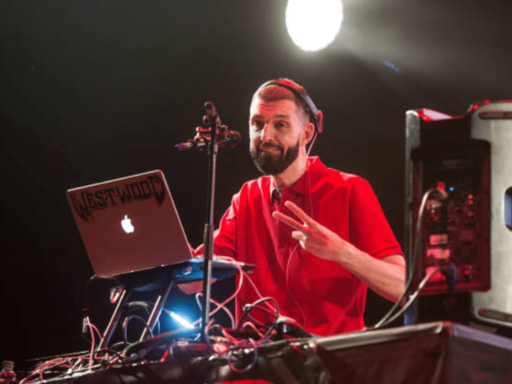This article includes discussion of rape and sexual abuse
On 9 October, the Metropolitan Police confirmed that former DJ and media personality Tim Westwood will face trial for multiple counts of rape and other sexual offences.
The news comes more than 5 years after allegations of the presenter’s sexual misconduct began to emerge. The investigation into the claims was first opened over 3 years ago.
Westwood has been charged with four counts of rape. He also stands accused of nine counts of indecent assault and two counts of sexual assault. The charges relate to crimes spanning from 1983 to 2016. They involve seven different people, of whom two were girls aged 17-18.
The former DJ will appear at Westminster Magistrates’ Court on 10 November.
Timeline
As early as 2020, claims that Westwood behaved inappropriately with predominantly Black female fans began to appear on Twitter. The accusers used the hashtag #SurvivingTimWestwood.
At the time, broadcaster Global Media came under fire for platforming the DJ and failing to investigate the allegations.
In April 2022, seven women accused Westwood of sexual misconduct as a result of a joint investigation by BBC News and the Guardian. Then, in July 2022, BBC News reported allegations that he had raped a 14-year-old girl multiple times. The Sunday Times also reported allegations made by 17 individuals in the same month.
The Metropolitan Police began an investigation of Westwood’s sexual offences in August 2022. They submitted evidence to the Crown Prosecution Service in November 2024.
BBC director general Tim Davie characterised the claims as “appalling”. However, he insisted that no complaints had been made against Westwood while he worked for the BBC. A Freedom of Information request made as part of the BBC News-Guardian investigation revealed six complaints against the hip-hop presenter for harassment and bullying.
Double disadvantage
Black women face a double disadvantage of racism and gender inequality when they encounter the justice system. Like many minoritised groups, they’re more likely to have worse experiences and outcomes when dealing with the police and courts. In turn, this means that they’re less likely to engage with the system. As such, they’re then less likely to receive the support they need.
Data for conviction rates for crimes against Black women and girls are not readily available. However, Operation Soteria – a police initiative to improve the investigation of rape – stated that Black and Minority Ethnic (BAME) respondents were less likely to feel the police had looked at all the evidence in their case compared to their white counterparts. Likewise, police were less likely to make BAME respondents feel that a sexual assault committed against them was not their fault.
In 2023, Rape Crisis found that 44% of minoritised survivors in their research had previously experienced discrimination at the hands of the police. Likewise, a 2023 Vulnerability Knowledge and Practice Programme (VKPP) study which explored police attitudes towards capturing the “voice of the victim” found that:
personnel can hold perceptions about particular communities and victims which can negatively affect their perceived credibility and impedes the willingness of personnel to capture their voice.
In 2022, Sophia Purdy-Moore wrote for the Canary:
In this society, Black women and girls are not protected from violence. And they are not believed when they speak out about the harm they have experienced. This is rooted in a culture of racism and misogyny which sexualises and adultifies Black girls and young women.
This is exemplified in the revelations of Met Police officers strip searching Black schoolgirls. Other officers took and shared dehumanising photos of murdered sisters Nicole Smallman and Bibaa Henry. Meanwhile, public services still fail to meet the needs of Black women and girls, and often put them at further risk of harm.
This is precisely why Westwood’s alleged victims were afraid to speak out. We must listen to these women, amplify their stories, and hold all those who contributed to their abuse accountable.
The offences of which Westwood stands accused were enabled by employers which habitually overlook allegations of sexual assault. They were facilitated by a justice system which discourages Black women from coming forward. The fact that it is only now that charges are being brought against Westwood is only further proof that Purdy-Moore’s words remain just as true today as they were three years ago.
Featured image via the Canary
From Canary via this RSS feed


